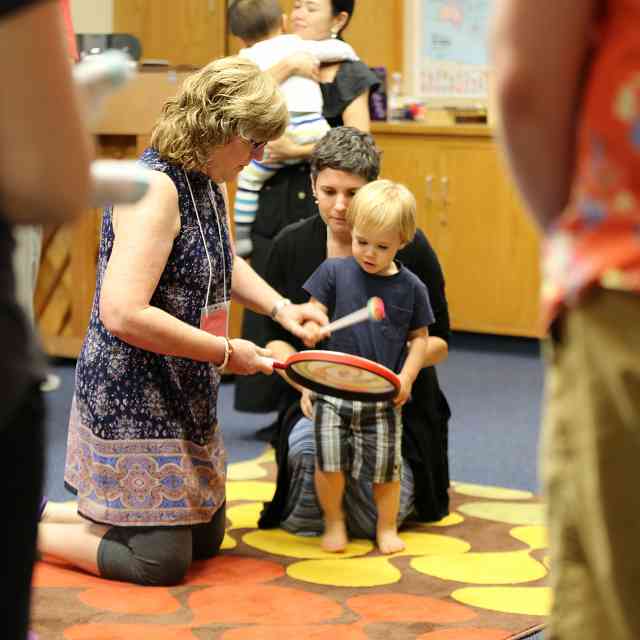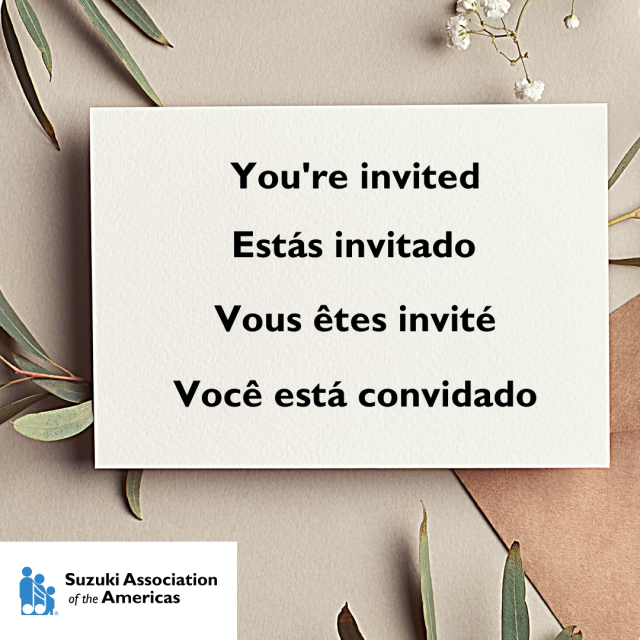Teaching preschool-aged students has presented a unique challenge during this time of online lessons. Of all the age groups I teach, online lessons are the hardest for many of my students in this age range. I have had to be creative and flexible in my approach to make lessons work for them right now—and maybe you are finding the same thing.
How do we help our youngest students continue to progress?
How do we help them hold on to the joy of making music?
What is working for them and their families right now?
These are questions I have been asking myself and inviting other Suzuki teachers to share about as well.
Here is what I learned:
Parents likely need extra support and information about how they can help the teacher during the online lesson. Have clear discussions about what will help you as the teacher give an effective lesson.
-
Do you want the parent in the video frame?
-
How hands-on do you want them to be?
-
Do you want to treat the lesson like a practice session (with the parent practicing with their child in front of you)?
-
Or would you prefer the parent to let you do all the talking?
Having conversations about these details and communicating a clear plan for the lesson before it starts will be so helpful.
Many teachers of preschool students are exchanging videos with each student’s family back-and-forth during the week.
Sometimes this video exchange is happening in addition to the regular lesson time, and for others, it is happening in place of the lesson. Suzuki teacher Kara Eubanks calls this the relay method. She shares that relaying videos back and forth is effective for some of her students (of all ages) when they can’t have lessons in person.
Teachers are also sending instructional videos more often for parents to use as practice guides.
Another approach is changing the frequency of lesson times.
Rather than one longer lesson time, some teachers are offering two short lessons during the week for their younger students.
Piano teacher Karen Huffman shared that she has done this for her preschool students even before COVID-19. I am finding it a very effective method right now as well (even for some older students). Several teachers who answered our survey on this topic shared the same tactic is working for them, too. It may be worth a try in your studio.
Here is a fun tip about creating a special “stage” area for young students:
“For my private lessons with Pre-Twinkle students, ages three to five, I have them stand on a chair, which is their special stage. It keeps them in one place in front of the screen. I also always ask the parent if they have any ideas of how I can make things easier for them,” said Carol Waldvogel, Suzuki teacher and director of North Shore Suzuki Strings.
Here is some advice from Suzuki parents of preschool age students:
Suzuki teacher and parent Michaela Sandness had this to share: “Each day we practice three things (which quickly becomes more). My daughter usually chooses two or three things. I try to choose something more challenging every few days. Basically, we are keeping things fun and light. Honestly . . . I think our progress is actually faster this way.”
Another Suzuki teacher and parent, Lauren Cless, shares this: “We have more options for practice time now that she doesn’t have school and I’m home more. So I’m letting her really take the lead on when to practice each day. I suggest some options that work around our work schedule, and she decides. We’ve been switching up what room we practice in, again her choice, and we’re playing violin for friends and grandparents on FaceTime.”
Many parents I have heard from echo these ideas; themes of flexibility, room for creativity, and lots of games during practice are extremely helpful right now.
Some families may be finding more time in their schedule, or at least more flexibility. Others may be more pressed for time as they balance working from home while childcare options and schools are closed. It’s important that we as teachers try to tailor our approach to each family’s needs. We can offer different options and ideas to support them as they work to keep music practice going right now.
Hopefully, this has given you a few ideas to think creatively about how to support the families you work with who have preschool-aged children.
We would love to hear what is working for you over in our teacher forum: Teacher’s Corner.







